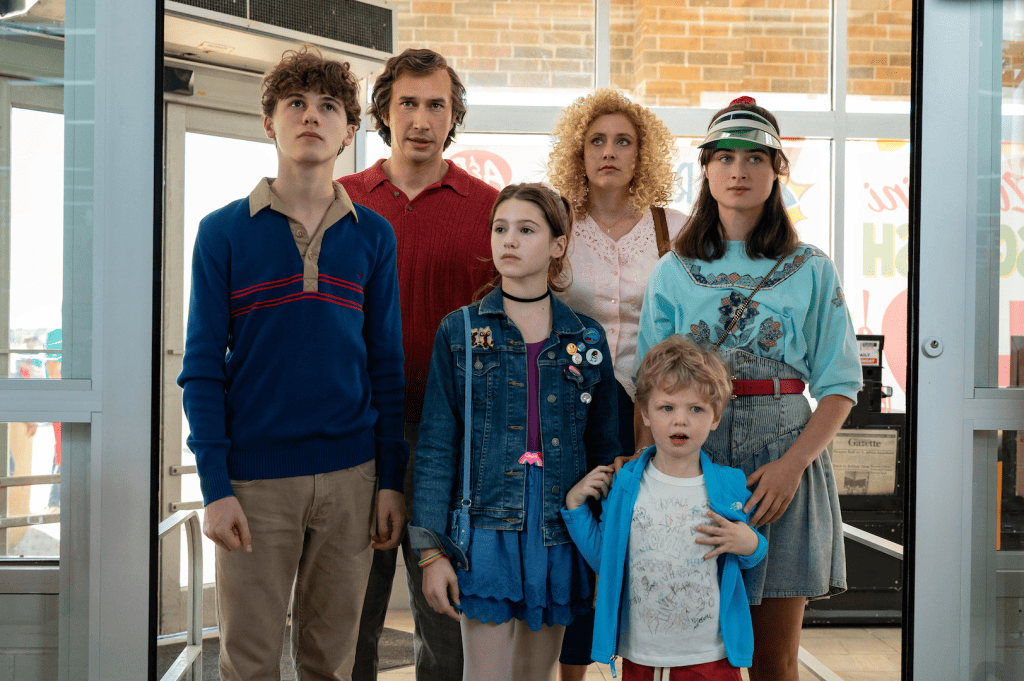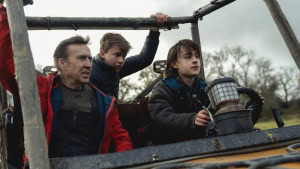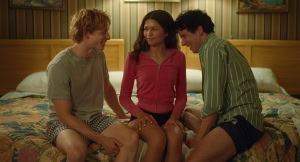Noah Baumbach’s films have always been dialogue-driven. Each and every word is so decidedly precise and rehearsed that the most difficult emotions can feel well-articulated. The writer-director’s most memorable moments are when characters palpably cut to the heart of their emotionality, from the explosive fight scene in Marriage Story to the bathroom confrontation in Frances Ha. No matter how staged or overwritten it all may look or sound, you can always rely on the empathy conveyed through how it feels.
This reliability is both figuratively and literally clouded by White Noise, Baumbach’s adaptation of Don DeLillo’s novel centering on an “airborne toxic event” that envelops a Hitler Studies professor (Adam Driver) and his wife (Greta Gerwig) into an existential paranoia over his looming death. In his first attempt at tackling another writer’s work, Baumbach has written a script so dense in philosophical absurdism that anybody new to DeLillo’s work will have a tough time keeping up.
There’s plenty of sharp wit, maybe the most Baumbach has ever displayed, but it has to puncture through layers upon layers of language. It’s accurate to the source material but remains elusive, so deeply drowned in its own farce that it softens the blow of any gut-punching moments, of which the third act has more than a few. You can’t help but wonder if Baumbach was so committed to preserving what was thought to be an “unfilmable” novel that he didn’t realize which parts should have stayed lost in translation.
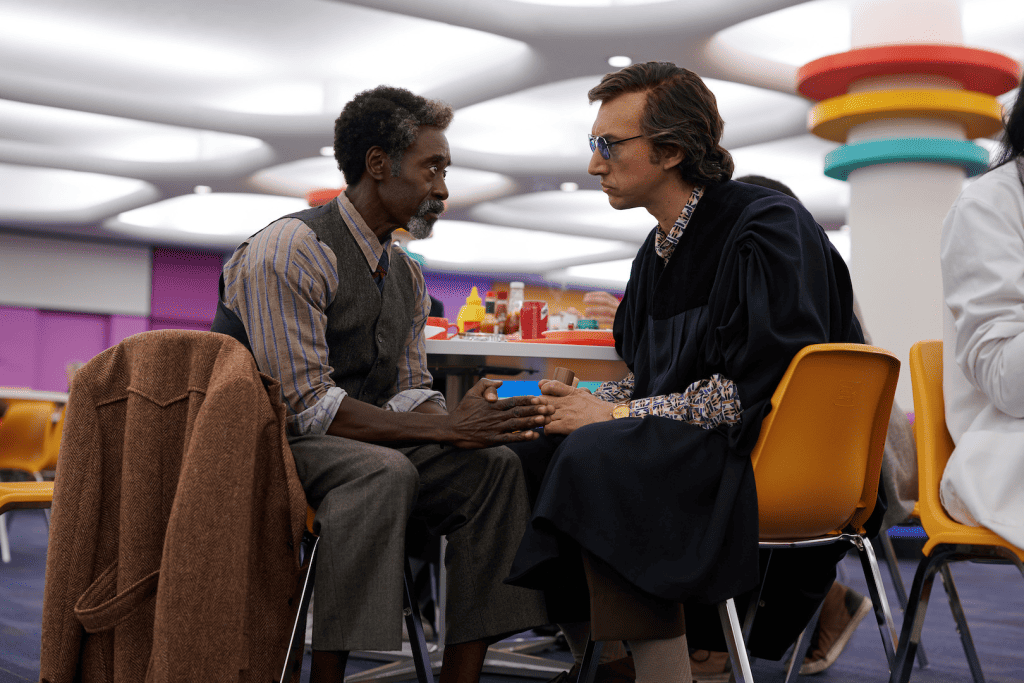
White Noise represents several other new frontiers for the beloved writer-director, far beyond the scripting stage. Many critics have been quick to point out the film’s massive scale, featuring more extras in a single scene than there are characters in Baumbach’s entire filmography. From extensively decorated period sets to several instances of practical stunt work, White Noise is a studio-level production far outside of the director’s typical comfort zone.
It’s a noticeable step up further elevated by the choice to capture everything on anamorphic 35mm, a noticeably wider aspect ratio than many of Baumbach’s previous films. It gives the film’s cinematic quality an even grander scale, as does Danny Elfman’s excellent score. You would never peg the beloved Burton-collaborator as a now Baumbach-collaborator, but the results are pitch-perfect. The master composer brings his sensibilities to the table as Baumbach is challenging himself as a filmmaker and they both bring out the best in each other’s work.
The director is clearly capable of capturing his own kind of spectacle, which he does in the film’s second and strongest act. As the toxic event takes hold, represented by a daunting, thunderous cloud of smoke slowly encroaching over the town, all of the film’s production value is channeled into a streamlined exploration of the film’s most resonant themes. Despite the adaptation being conceived before the pandemic, it’s a story of hysteria that fits perfectly into our current moment. After the cheeky but heady first act, Baumbach’s bloated script takes a backseat to evocative character interactions and genuine thrills.
Things calm down going into our third and final section, where the focus is recentered on a mysterious prescription drug that Gerwig’s character is taking in secret. It provides Driver and especially Gerwig deeper emotional range in their already-strong performances, but the tonal imbalance soon rears its ugly head. Amidst heartbreaking moments, the film still can’t help but poke fun at itself and the result is nothing short of confounding. The third act plods along at this confused clip, undermining any delicacy at every turn.
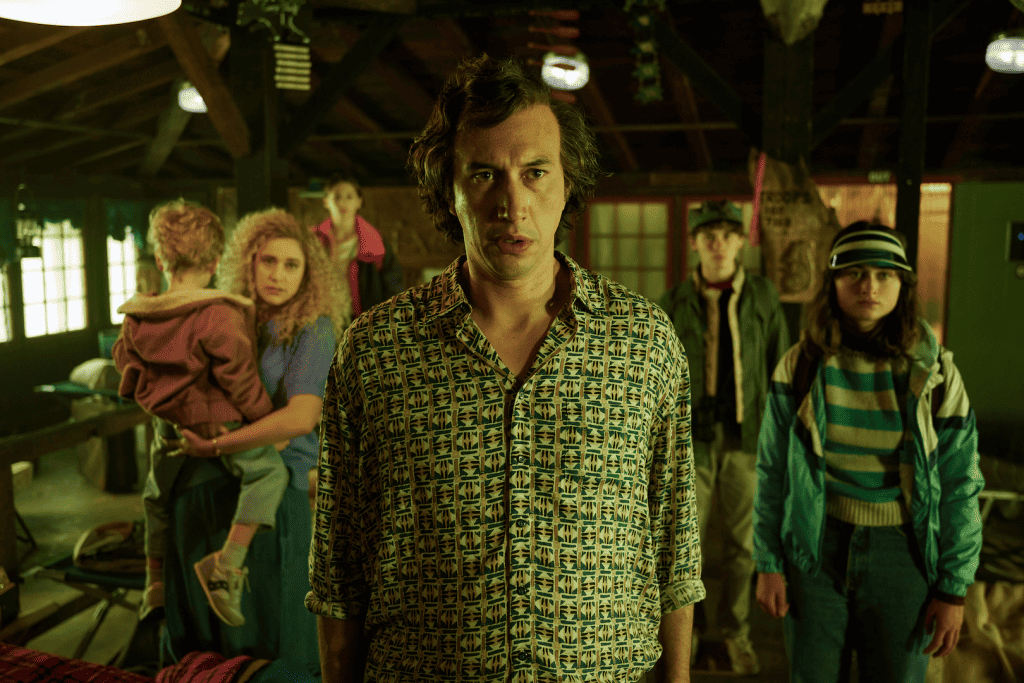
But even then, it’s hard to not be distracted by Baumbach’s fluidity in genre. Suddenly, the disaster film morphs into a marital drama, then a psychological thriller, and then a musical. As you watch the film’s final moments, a musical number courtesy of LCD Soundsystem, its quiet optimism leaves you satisfied, if not a bit puzzled. White Noise looks death square in the face and talks its ear off, only for it to conclude with a shrug and a smile. It says relatively little with far too many words, but at least it will have you laughing enough to leave you smiling.
White Noise had its North American premiere in the Main Slate section of New York Film Festival 2022. The film is scheduled to be released in select cinemas on November 25, before its streaming release on December 30, 2022, by Netflix.
Director: Noah Baumbach
Writer: Noah Baumbach
Rated: NA
Runtime: 136m
Despite being held back by a philosophically heady script, Noah Baumbach provides another enjoyable family drama at a scale we’ve never seen from him before.
-
GVN Rating 6
-
User Ratings (0 Votes)
0

Larry Fried is a filmmaker, writer, and podcaster based in New Jersey. He is the host and creator of the podcast “My Favorite Movie is…,” a podcast dedicated to helping filmmakers make somebody’s next favorite movie. He is also the Visual Content Manager for Special Olympics New Jersey, an organization dedicated to competition and training opportunities for athletes with intellectual disabilities across the Garden State.


